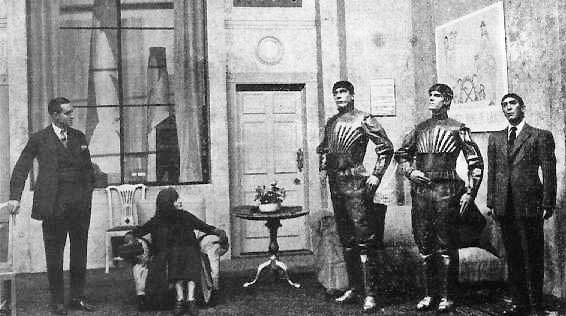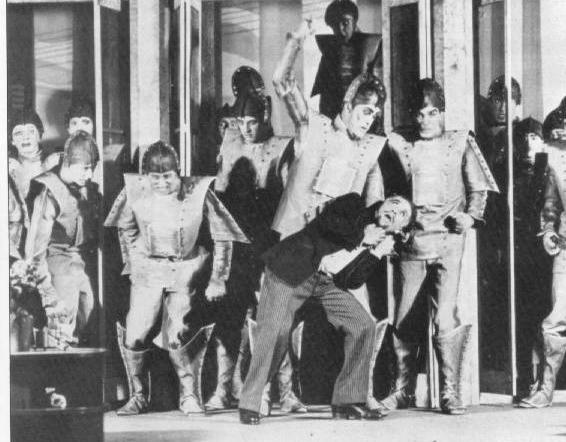You can discuss fiction which is including automata. The original of those stories likely is the myth of the giant robot-defender of Crete, named Talos. A creation of Hephaestos, like all the other metallic living things or machinery.
E.T.A. Hoffmann was a very significant author in the era of romanticism, and influenced very famous later authors as well (eg Dostoevsky and Guy de Maupassant). A lot of his stories are about automata. "Der Sandmann" is likely his crowning work in this genre, and a very interesting short story. A larger work of his is "The Elixirs of the Devil", which has to do with doubles/doppelgangers.
Although not exactly about a robot, there is a very uncharacteristic short story by Kleist, titled "The marionettes" (iirc, or something similar). It is a (mostly allegoric) study of the move of marionettes, juxtaposed to humans. Later on it has a very strange and memorable scene of fencing, where only one of the adversaries happens to be human
*
Sadly i do not recall any other automaton or robot in literature which made an impression on me. The charm of the stories mentioned above is that the automata are not a sort of human with machine parts, but really something alien to humans. They are a lot more like moving blocks of wood and metal, and maybe not much more than an illusion, despite having some basic abilities (even to talk, in some of Hoffmann's stories). The Golem, in the eponymous early 20th century novel by Gustave Meyrink, is a variation on that (and the jewish myth of the golem), but in reality it is not about robots as much as about a trap which can get operated by a human.

E.T.A. Hoffmann was a very significant author in the era of romanticism, and influenced very famous later authors as well (eg Dostoevsky and Guy de Maupassant). A lot of his stories are about automata. "Der Sandmann" is likely his crowning work in this genre, and a very interesting short story. A larger work of his is "The Elixirs of the Devil", which has to do with doubles/doppelgangers.
Although not exactly about a robot, there is a very uncharacteristic short story by Kleist, titled "The marionettes" (iirc, or something similar). It is a (mostly allegoric) study of the move of marionettes, juxtaposed to humans. Later on it has a very strange and memorable scene of fencing, where only one of the adversaries happens to be human

*
Sadly i do not recall any other automaton or robot in literature which made an impression on me. The charm of the stories mentioned above is that the automata are not a sort of human with machine parts, but really something alien to humans. They are a lot more like moving blocks of wood and metal, and maybe not much more than an illusion, despite having some basic abilities (even to talk, in some of Hoffmann's stories). The Golem, in the eponymous early 20th century novel by Gustave Meyrink, is a variation on that (and the jewish myth of the golem), but in reality it is not about robots as much as about a trap which can get operated by a human.




 Has to be said, though, that those seem to be 'androids', ie some sort of supposed AI. An automaton is not really an intelligence; more of an automatically moving and (very basically) having a set goal kind of creation/machine. It may have some infinitesimal sense, but this is not clear, and i doubt it can be argued in the cases i mentioned. But they are still creepy objects with some pseudo-will to do something.
Has to be said, though, that those seem to be 'androids', ie some sort of supposed AI. An automaton is not really an intelligence; more of an automatically moving and (very basically) having a set goal kind of creation/machine. It may have some infinitesimal sense, but this is not clear, and i doubt it can be argued in the cases i mentioned. But they are still creepy objects with some pseudo-will to do something.
